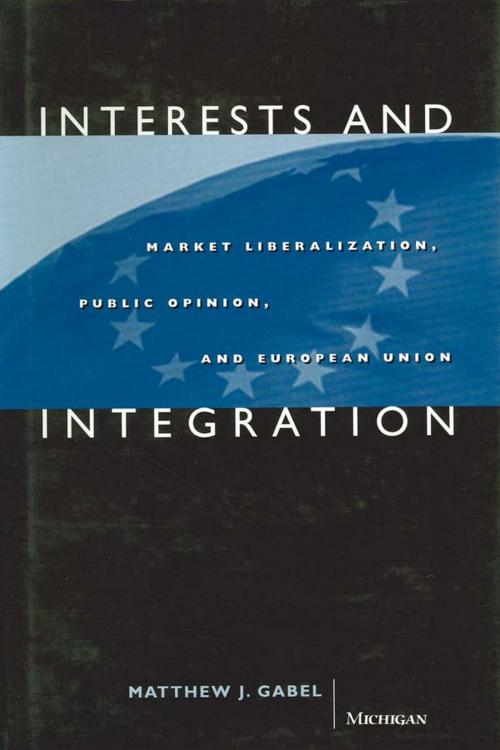Interests and Integration
Market Liberalization, Public Opinion, and European Union
Nonfiction, Social & Cultural Studies, Political Science, Politics, Economic Policy| Author: | Matthew Joseph Gabel | ISBN: | 9780472022243 |
| Publisher: | University of Michigan Press | Publication: | December 10, 2009 |
| Imprint: | University of Michigan Press | Language: | English |
| Author: | Matthew Joseph Gabel |
| ISBN: | 9780472022243 |
| Publisher: | University of Michigan Press |
| Publication: | December 10, 2009 |
| Imprint: | University of Michigan Press |
| Language: | English |
Integration in Europe has been a slow incremental process focusing largely on economic matters. Policy makers have tried to develop greater support for the European Union by such steps as creating pan-European political institutions. Yet significant opposition remains to policies such as the creation of a single currency. What explains continued support for the European Union as well as opposition among some to the loss of national control on some questions? Has the incremental process of integration and the development of institutions and symbols of a united Europe transformed public attitudes towards the European Union?
In this book, Matthew Gabel probes the attitudes of the citizens of Europe toward the European Union. He argues that differences in attitudes toward integration are grounded in the different perceptions of how economic integration will affect individuals' economic welfare and how perceptions of economic welfare effect political attitudes. Basing his argument on Easton's idea that where affective support for institutions is low, citizens will base their support for institutions on their utilitarian appraisal of how well the institutions work for them, Gabel contends that in the European Union, citizens' appraisal of the impact of the Union on their individual welfare is crucial because their affective support is quite low.
This book will be of interest to scholars studying European integration as well as scholars interested in the impact of public opinion on economic policymaking.
Matthew Gabel is Assistant Professor of Political Science, University of Kentucky.
Integration in Europe has been a slow incremental process focusing largely on economic matters. Policy makers have tried to develop greater support for the European Union by such steps as creating pan-European political institutions. Yet significant opposition remains to policies such as the creation of a single currency. What explains continued support for the European Union as well as opposition among some to the loss of national control on some questions? Has the incremental process of integration and the development of institutions and symbols of a united Europe transformed public attitudes towards the European Union?
In this book, Matthew Gabel probes the attitudes of the citizens of Europe toward the European Union. He argues that differences in attitudes toward integration are grounded in the different perceptions of how economic integration will affect individuals' economic welfare and how perceptions of economic welfare effect political attitudes. Basing his argument on Easton's idea that where affective support for institutions is low, citizens will base their support for institutions on their utilitarian appraisal of how well the institutions work for them, Gabel contends that in the European Union, citizens' appraisal of the impact of the Union on their individual welfare is crucial because their affective support is quite low.
This book will be of interest to scholars studying European integration as well as scholars interested in the impact of public opinion on economic policymaking.
Matthew Gabel is Assistant Professor of Political Science, University of Kentucky.















